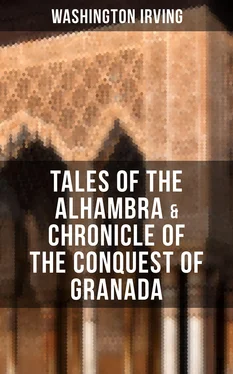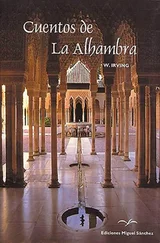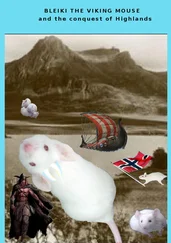These were the only feathered associates with whom the prince had any opportunity of exercising his newly acquired language; the tower was too high for any other birds to frequent it. He soon grew weary of his new acquaintances, whose conversation spoke so little to the head, and nothing to the heart; and gradually relapsed into his loneliness. A winter passed away, spring opened with all its bloom and verdure and breathing sweetness, and the happy time arrived for birds to pair and build their nests. Suddenly, as it were, a universal burst of song and melody broke forth from the groves and gardens of the Generalife, and reached the prince in the solitude of his tower. From every side he heard the same universal theme — love — love — love chanted forth, and responded to in every variety of note and tone. The prince listened in silence and perplexity. “What can be this love,” thought he, “of which the world seems so full, and of which I know nothing?” He applied for information to his friend the hawk. The ruffian bird answered in a tone of scorn: “You must apply,” said he, “to the vulgar peaceable birds of earth, who are made for the prey of us princes of the air. My trade is war, and fighting my delight. I am a warrior, and know nothing of this thing called love.”
The prince turned from him with disgust, and sought the owl in his retreat. “This is a bird,” said he, “of peaceful habits, and may be able to solve my question.” So he asked the owl to tell him what was this love about which all the birds in the groves below were singing.
Upon this, the owl put on a look of offended dignity. “My nights,” said he, “are taken up in study and research, and my days in ruminating in my cell upon all that I have learnt. As to these singing birds of whom you talk, I never listen to them — I despise them and their themes. Allah be praised, I cannot sing; I am a philosopher, and know nothing of this thing called love.”
The prince now repaired to the vault, where his friend the bat was hanging by the heels, and propounded the same question. The bat wrinkled up his nose into a most snappish expression. “Why do you disturb me in my morning’s nap with such an idle question?” said he, peevishly. “I only fly by twilight, when all birds are asleep, and never trouble myself with their concerns. I am neither bird nor beast, and I thank heaven for it. I have found out the villany of the whole of them, and hate them one and all. In a word, I am a misanthrope — and know nothing of this thing called love.”
As a last resort, the prince now sought the swallow, and stopped him just as he was circling about the summit of the tower. The swallow, as usual, was in a prodigious hurry, and had scarce time to make a reply. “Upon my word,” said he, “I have so much public business to attend to, and so many pursuits to follow, that I have had no time to think on the subject. I have every day a thousand visits to pay; a thousand affairs of importance to examine into, that leave me not a moment of leisure for these little sing-song matters. In a word, I am a citizen of the world — I know nothing of this thing called love.” So saying, the swallow dived into the valley, and was out of sight in a moment.
The prince remained disappointed and perplexed, but with his curiosity still more piqued by the difficulty of gratifying it. While in this mood, his ancient guardian entered the tower. The prince advanced eagerly to meet him. “O Eben Bonabben,” cried he, “thou hast revealed to me much of the wisdom of the earth; but there is one thing of which I remain in utter ignorance, and would fain be informed.”
“My prince has but to make the inquiry, and every thing within the limited range of his servant’s intellect is at his command.”
“Tell me then, O most profound of sages, what is the nature of this thing called love?”
Eben Bonabben was struck as with a thunderbolt. He trembled and turned pale, and felt as if his head sat but loosely on his shoulders.
“What could suggest such a question to my prince — where could he have learnt so idle a word?”
The prince led him to the window of the tower. “Listen, O Eben Bonabben,” said he. The sage listened. The nightingale sat in a thicket below the tower, singing to his paramour the rose; from every blossomed spray and tufted grove rose a strain of melody; and love — love — love — was still the unvarying strain.
“Allah Akbar! God is great!” exclaimed the wise Bonabben. “Who shall pretend to keep this secret from the heart of man, when even the birds of the air conspire to betray it?”
Then turning to Ahmed—”O my prince,” cried he, “shut thine ears to these seductive strains. Close thy mind against this dangerous knowledge. Know that this love is the cause of half the ills of wretched mortality. It is this which produces bitterness and strife between brethren and friends; which causes treacherous murder and desolating war. Care and sorrow, weary days and sleepless nights, are its attendants. It withers the bloom and blights the joys of youth, and brings on the ills and griefs of premature old age. Allah preserve thee, my prince, in total ignorance of this thing called love!”
The sage Eben Bonabben hastily retired, leaving the prince plunged in still deeper perplexity. It was in vain he attempted to dismiss the subject from his mind; it still continued uppermost in his thoughts, and teased and exhausted him with vain conjectures. Surely, said he to himself, as he listened to the tuneful strains of the birds, there is no sorrow in those notes; every thing seems tenderness and joy. If love be a cause of such wretchedness and strife, why are not these birds drooping in solitude, or tearing each other in pieces, instead of fluttering cheerfully about the groves, or sporting with each other among flowers?
He lay one morning on his couch meditating on this inexplicable matter. The window of his chamber was open to admit the soft morning breeze, which came laden with the perfume of orange blossoms from the valley of the Darro. The voice of the nightingale was faintly heard, still chanting the wonted theme. As the prince was listening and sighing, there was a sudden rushing noise in the air; a beautiful dove, pursued by a hawk, darted in at the window, and fell panting on the floor; while the pursuer, balked of his prey, soared off to the mountains.
The prince took up the gasping bird, smoothed its feathers, and nestled it in his bosom. When he had soothed it by his caresses, he put it in a golden cage, and offered it, with his own hands, the whitest and finest of wheat and the purest of water. The bird, however, refused food, and sat drooping and pining, and uttering piteous moans.
“What aileth thee?” said Ahmed. “Hast thou not every thing thy heart can wish?”
“Alas, no!” replied the dove; “am I not separated from the partner of my heart, and that too in the happy springtime, the very season of love!”
“Of love!” echoed Ahmed; “I pray thee, my pretty bird, canst thou tell me what is love?”
“Too well can I, my prince. It is the torment of one, the felicity of two, the strife and enmity of three. It is a charm which draws two beings together, and unites them by delicious sympathies, making it happiness to be with each other, but misery to be apart. Is there no being to whom you are drawn by these ties of tender affection?”
“I like my old teacher Eben Bonabben better than any other being; but he is often tedious, and I occasionally feel myself happier without his society.”
“That is not the sympathy I mean. I speak of love, the great mystery and principle of life: the intoxicating revel of youth; the sober delight of age. Look forth, my prince, and behold how at this blest season all nature is full of love. Every created being has its mate; the most insignificant bird sings to its paramour; the very beetle woos its lady-beetle in the dust, and yon butterflies which you see fluttering high above the tower, and toying in the air, are happy in each other’s loves. Alas, my prince hast thou spent so many of the precious days of youth without knowing any thing of love? Is there no gentle being of another sex — no beautiful princess nor lovely damsel who has ensnared your heart, and filled your bosom with a soft tumult of pleasing pains and tender wishes?”
Читать дальше












